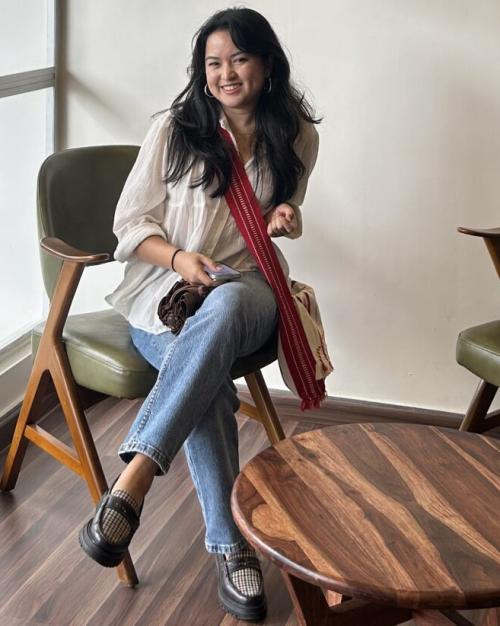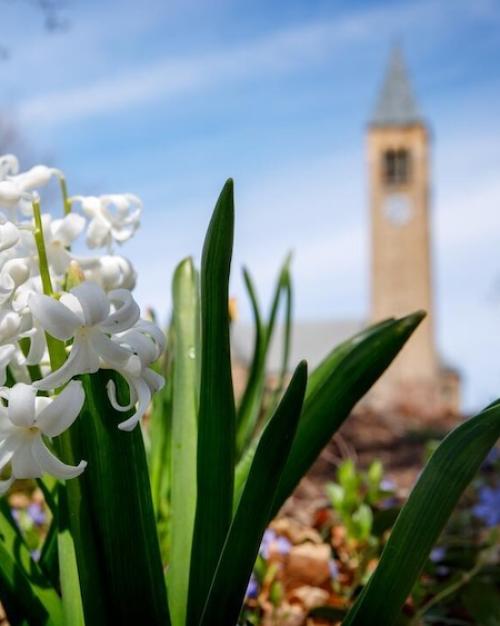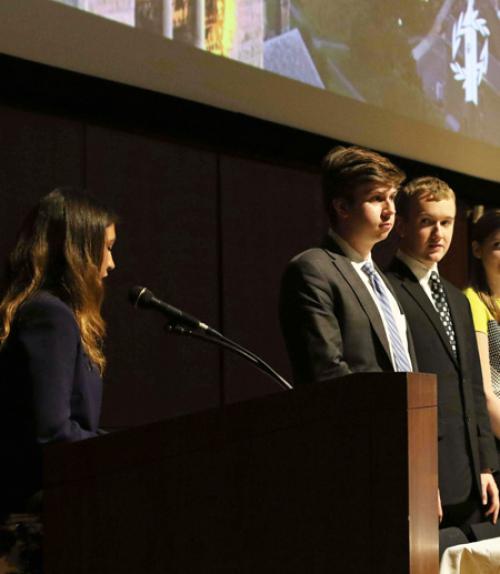This year’s Cornell Model United Nations Conference brought more than 800 high school students to campus in April. The conference, which is organized annually by the Cornell International Affairs Society, included high school delegates who hailed from across the United States and from around the world.
“It is inspiring to see our Cornell students take on strong leadership roles through the Model UN Conference,” says Laura Spitz, Cornell’s vice provost for international affairs. “Through their proactive approach, they provide a meaningful opportunity for global-at-home learning.”
During opening ceremonies, Cornell Model United Nations Conference secretary general and event organizer Austin McLaughlin ’18 (College of Arts and Sciences) reflected on the importance of the program in shaping his own career trajectory. “The Model UN has taken me across the United States and across the ocean to China. The program introduced me to the world, to people and to myself. And it taught me how a few people can come together to enact positive change,” he said. He noted that the organization hosted its first conference in China in 2017.
“It is inspiring to see our Cornell students take on strong leadership roles through the Model UN Conference.”
“Planning a 1,000-person conference is not a task we take lightly,” says Aranzazú Jorquiera ’17 (College of Arts and Sciences), president of the Cornell International Affairs Society. In fact, the secretariat—the team of Cornell students selected to run the 2018 conference—has already begun preparing for next year.
“The conference staff are incredibly hardworking and experienced Cornell students,” says Jorquiera. She explains that the student chairs work with their committees to create two or three relevant topics that will be discussed throughout the conference. During the conference, staffers uphold strict rules of procedure, emphasizing respect and participation as the core expectations for participants.
Students who staff the conference are able to gain an in-depth knowledge of the topic they choose, often drawing from their classes at Cornell. The challenge of facilitating discussion around contentious issues helps the Cornell students who staff the conference to develop a deeper understanding of global politics and peacekeeping.
“As staffers interact with delegates and encourage them to break down complicated dilemmas and arrive at a point of agreement, they are forced to consider each player’s key drivers as well as the role they can have in changing the course of debate,” says Jorquiera. “For example, in a crisis scenario, staffers have the ability to alter the course of events to spark revolution, resolution, the creation of a new world order, or whatever else fits the moment.”
Ryan Norton ’17 (College of Arts and Sciences) still recalls his experience as chair of the International Criminal Court Committee at the 2016 conference. His committee was assigned two cases to prosecute: one against the prime minister of Israel and one against a leader of Hamas, an Islamic militant group. “The delegates quickly figured out that because of the way Hamas is structured, there is very little accountability when individuals commit war crimes,” Norton says. “It is not clear who bears responsibility, and in our simulation the Hamas leader walked away scot-free. This experience gave delegates a very real and abiding sense of the heavy burden that organized countries have in prosecuting acts of terror.”
Michelle Dan ’19 (School of Industrial and Labor Relations) served as the 2017 chair for the International Labor Organization Crisis Committee. “Over the course of the weekend, my delegates debated various topics—from addressing child labor to the merits of eliminating the United Kingdom,” she says. “I was so excited to see all the innovative solutions they came up with, and I loved their enthusiasm!”
Involvement with the Cornell Model United Nations Conference provides Cornell student volunteers with leadership experience in diplomacy and conflict resolution, as well as opportunities to practice quick thinking and public speaking. Conference alumni have leveraged this experience to land jobs with a focus on international relations, including positions in national security, at major consulting firms, and in the nonprofit sector.
“We want high school students to learn to see the world from a variety of different perspectives,” says Jorquiera. “We expect delegates to really immerse themselves in their roles, regardless of previous beliefs or their backgrounds. We hope that, through these experiences, delegates learn to think with an open mind and to consider multiple viewpoints when discussing international issues.”
After chairing a conference committee on China under revolution, Alison Schonberg ’16 (College of Arts and Sciences) found a position as a research analyst at a strategy firm in Shanghai.
Current conference secretariat member Zhun Che ’18 (College of Agriculture and Life Sciences) has traveled to China and India to participate in conversations about international relationship building. These connections have opened doors for him, he says, allowing him to find summer internships and helping him to better define his future career goals.
This story also appeared on the Global Cornell website.




